Why now?
It’s a rare day anyone can say the future looks bright for Somalia,
but for the first time in years, the state preyed on by jihadis,
pirates and warlords has a shot at stability. The most significant
success came towards the tail-end of 2011, when African Union troops
forced out al-Shabaab, the al-Qaeda-linked Islamists, from the capital
Mogadishu.
Ever since, diplomats, donors and Somalis have been hopeful. But
Somalia hasn’t had a functioning government for the past 22 years.
Everything needs to be done and all gains are fragile. Relations
between a new, weak central government and clan-aligned regions are
increasingly fractious, al-Shabaab launches regular suicide attacks on
Mogadishu and still controls much of the southern countryside. This
month, the UK hosted a conference dedicated to security, political
stability and reform in Somalia. Hundreds of millions of dollars in
aid were pledged. Much more is needed, but Somalia’s debts need to be
cleared first.
What impression did you take away about the situation on the ground?
I was told I would be arriving to a Mogadishu so transformed I’d be
constantly stuck in traffic jams, signs of an economy coming back to
life. Instead, I arrived to a ghost town. Making our way down empty
roads escorted by armed men, we were slowed down only by potholes and
armed patrols manning junctions. The reason? A security alert had shut
down the city for three days. Special forces in khaki balaclavas and
shades –resembling scary alien worms – were out in force. Transporters
and workers complained they could not make a living as they were
turned back at checkpoints. May Day events were cancelled. The day
after the lock-down was lifted, a car bomb exploded. A minister’s car
had been the target but instead several civilians were killed. The
city has yet to find a way to secure its citizens. That makes
attracting investment much more difficult.
What was one of the most interesting things you learned?
It’s not every day you find yourself poring over public financial
management documents agog. But the broken finances of the country are
one of the main reasons the government is so weak. Nearly no one pays
any tax, nor sees any reason why they should. Last year, the
government collected $28.5m in taxes for a nation of 8m – a result the
country’s latest budget paper describes as “dismal”. This year, the
new government wants to boost that to $53.9m. But it has also put
together a bare-minimum budget of $114m and, even with external
assistance mounting to $30m, there’s a further $30m shortfall. The
government still has little sway outside of Mogadishu. It needs to
deliver services if it can claim to be legitimate and also to show
that it may be worth paying tax if you get something back. At the
moment almost all tax comes from port and airport customs rather than
income tax. Donors know that, for the moment, they will have to help
deliver cash and services if the government is to survive.
Tell us about someone you met.
Some of Somalia’s adults have known fighting all their lives. At 21,
Harbi Mohammed was born soon after the civil war started. Like his
father before him, he joined the police force. He translates at
checkpoints for African Union forces – police from Nigeria and Uganda.
“I was born when there was fighting and we are still fighting,” he
told me. “We shall not leave there until we chase all of them.”
Here is an excerpt from Katrina’s interview with the country’s
president, Hassan Sheikh Mohamud.
“In Somalia today we have the level of destruction of Europe in 1945 –
the same level of displacement, the same level of shattered economic
aspects,” Mr Mohamud told the Financial Times during a flight from
Mogadishu on his way to co-host the London conference, adding that two
million Somalis had fled their homes.
“But added to that are two very dangerous, complex phenomena – in the
Europe of 1945 there was no terrorism and there was no piracy.”
Here is an excerpt from her piece on Somalia’s oil industry:
After an absence of more than 30 years, Abdirizak Omar Mohamed has
returned to Somalia, the country of his birth. Last year he gave up
his job as a civil servant in the housing sector in Canada to take up
a position as one of only 10 ministers in Mogadishu’s new, slimline
cabinet.
As minister for natural resources in a dysfunctional country divided
by a continuing war, he has to oversee a bulging portfolio that
includes water, agriculture, the environment and livestock. As if that
were not enough, his brief now also includes hydrocarbons just as
Somalia – and east Africa more broadly – has become one of the most
attractive frontiers in oil exploration for leading companies such as
Royal Dutch Shell and ConocoPhillips.
“The president and I have discussions every day about oil,” says Mr
Mohamed in his office that looks out at the Indian Ocean across the
tumbledown city of Mogadishu.

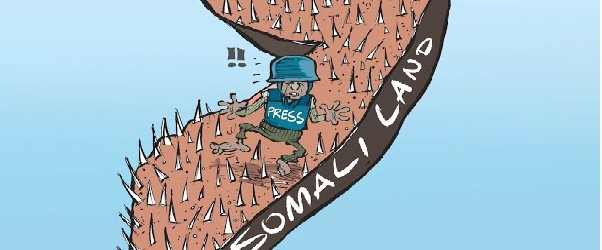




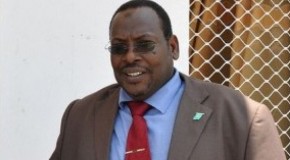



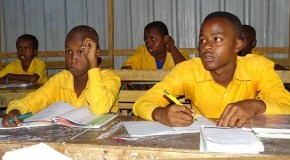
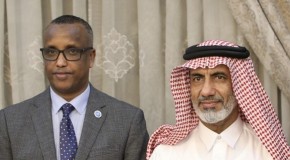




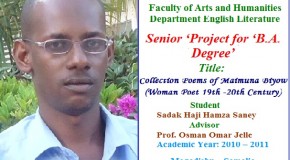


Comments are closed.